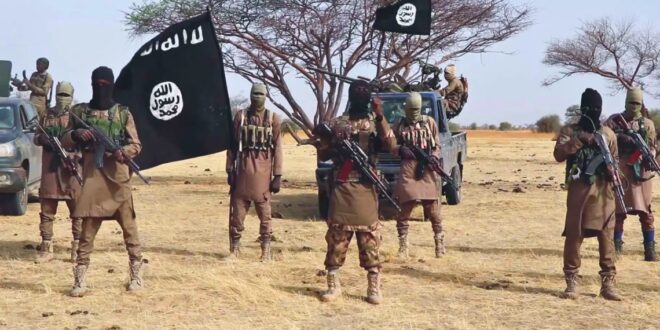Disrupting the financing and local economies of violence is crucial to defeating terrorist groups.
Nigeria recently sanctioned several individuals and entities for allegedly financing terrorism. The list includes six Nigerians sentenced to 10 years to life in prison in 2019 for establishing a Boko Haram cell in the United Arab Emirates (UAE) to raise cash for Boko Haram in Nigeria.
This shows the international dynamics of terror financing, involving non-banking financial institutions like Bureau De Change and other businesses. The United States has also placed the individuals on its sanctions list.
Nigeria claims to know dozens of Boko Haram sponsors, but has not been able to prosecute or convict any of them. As of January, Nigeria was one of 21 countries, including its Lake Chad Basin neighbour Cameroon, on the Financial Action Task Force grey list. The list names countries ‘with weak measures to combat money laundering and terrorist financing.’
Issuing sanctions aligns with the United Nations Security Council Resolution on Suppression of Terrorism, but is not enough. Equally important is using evidence and the law to disrupt terrorism financing and the economies of violence that sustain terrorist and non-state armed groups, including through law enforcement.
For example, the financial inflows of Islamic State West Africa Province (ISWAP), a Boko Haram faction, are augmented by Islamic State (ISIS). ISWAP is one of ISIS’ most important franchises, and its support gives the West African group resilience and adaptability, allowing it to continue functioning in the Lake Chad Basin. Dismantling ISWAP’s financial networks requires a robust strategy involving joint efforts from the four affected Lake Chad Basin countries and beyond, as the group extends its operations.
Institute for Security Studies (ISS) research shows that ISWAP’s revenue is generated by exploiting local economies, as well as foreign support and organised crime, including kidnapping, extortion and collaboration with security agents.
Despite the UAE convictions, ISIS continues to bankroll ISWAP. This takes the form of new monthly payments to its fighters and supporting governance activities in ISWAP-controlled areas such as caring for widows, orphans and people with disabilities. Administrators, health workers and farmers are also expected to be financially supported. This is all part of ISWAP’s strategy to attract recruits, prevent defections and boost its image among civilians in areas it controls.
Given its elaborate economic network, it’s unclear why ISWAP needs money from ISIS. Perhaps extra resources are required to recover from defeats by government forces led by the Multinational Joint Task Force, or the recent loss of important territories to another Boko Haram faction, Jama’atu Ahlis-Sunna Lidda’Awati Wal-Jihad (JAS). Or to fund ISWAP’s aggressive expansion into north-west and north-central Nigeria?
Because ISWAP relies on civilian collaborators to acquire goods and run errands, it always needs substantial cash to pay above-market rates. Former members who recently defected say ISWAP is financially strong and that the ISIS funds were proposed by the global terror organisation, not requested by ISWAP. However, the recent events noted above point to the group’s likely financial struggles and the need to raise cash.
Civilians in some ISWAP-controlled areas told ISS researchers that the group had recently raised taxes and required other payments from them. Fishermen using the ‘gura’ technique (Malian trap) now pay ₦50,000 ($38) for a fishing permit – a 67 per cent increase compared to two years ago. The levy on a carton of processed fish has risen to ₦5,000 ($4), and herders complained that cattle tax was now ₦4,000 ($3). The resulting community frustrations are apparently partly responsible for some ISWAP fighters defecting to join JAS.
Curbing terrorism financing isn’t easy. Nevertheless, the UAE example shows that Lake Chad Basin states could address the ISWAP threat by cutting off its oxygen. That requires identifying and eliminating revenue sources through incentivising community participation, raising awareness of the dangers of working with ISWAP, and providing employment to prevent civilians from seeking alternative livelihoods from the terror group.
There are enough laws in and outside the Lake Chad Basin countries that can help disrupt ISWAP finances. All four Basin states have ratified the African Union Convention on the Prevention and Combating of Terrorism. And all belong to regional organisations working to combat terrorism financing.
Cameroon and Chad are part of the Action Group Against Money Laundering in Central Africa. Niger and Nigeria belong to the Inter-Governmental Action Group against Money Laundering in West Africa. Both organisations are members of the Financial Action Task Force global network. All four countries also have financial intelligence units to tackle money laundering and terrorism financing.
Only Chad has yet to ratify the UN International Convention for the Suppression of the Financing of Terrorism. This crucial international agreement encourages collaboration, with nations able to call for help from others when necessary.
While recognising the Herculean task of countering terrorism financing, especially concerning Boko Haram, the fight is winnable. Lake Chad Basin states must be willing to collaborate and take a stand against terrorism’s lifeline – its financing – using the tools and laws at their disposal.
 Eurasia Press & News
Eurasia Press & News



